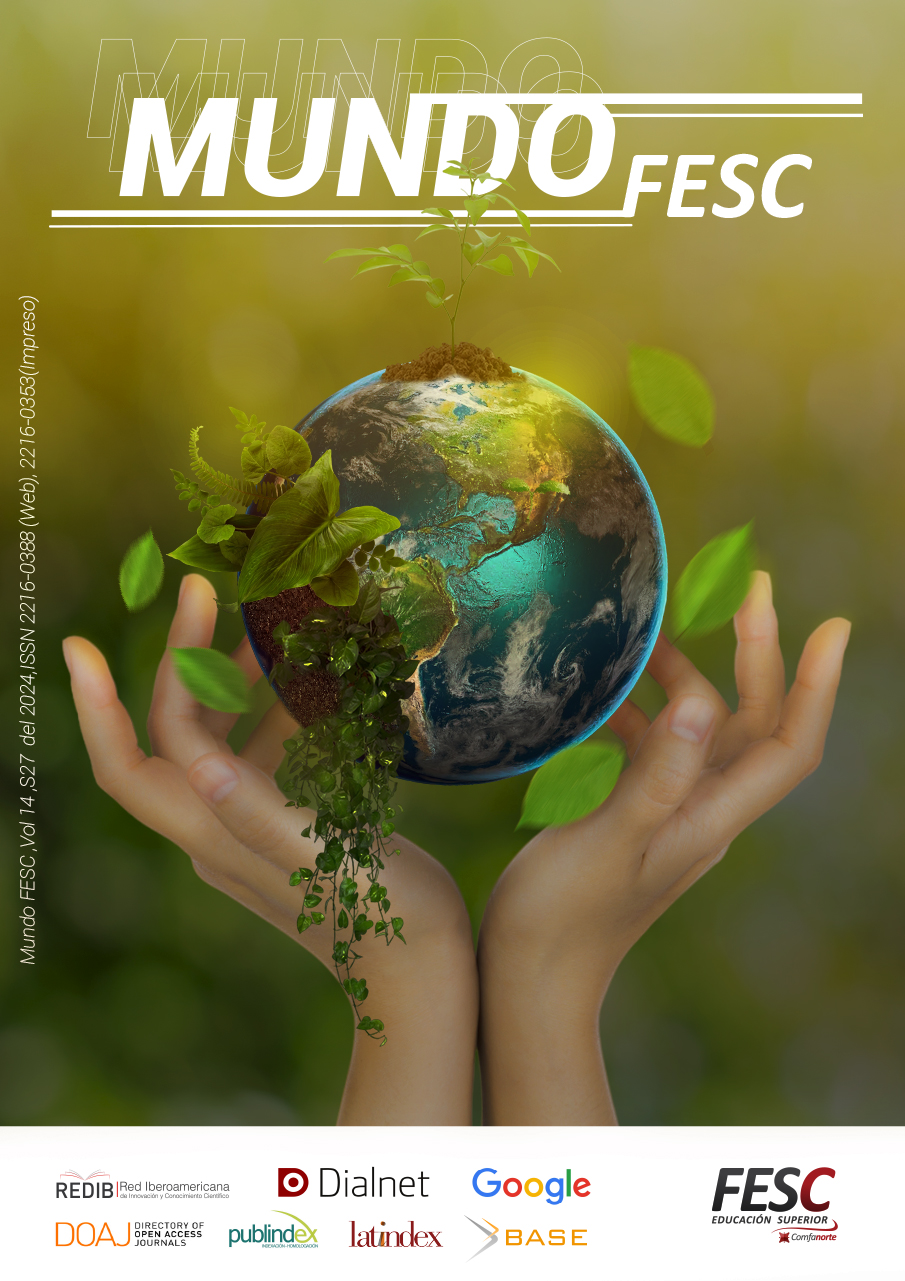Impact of Business Administration Graduates from UFPSO Ocaña Campus on Social, Academic, Scientific, and Cultural Fields (2017-2022)
DOI:
https://doi.org/10.61799/2216-0388.1600Keywords:
Graduate, Social sphere, Academic sphere, Scientific sphere, Cultural sphere.Abstract
The present article focuses on analyzing the impact
of the graduates from the Business Administration
program at U.F.P.S. Ocaña branch during the study
period between 2017 and 2022. This impact study of
the Business Administration graduates from U.F.P.S.
Ocaña branch in the social, academic, scientific,
and cultural fields (2017-2022) aims to evaluate
and document how the program's graduates have
contributed to solving social problems and to the
creation and innovation of knowledge. This study
seeks to identify the graduates' contributions in their
respective fields, analyze the extent of their influence
on society, and establish mechanisms to improve the
quality and relevance of the academic program.
Downloads
References
[1] A. Sen, Desarrollo y libertad, Barcelona: Planeta, 1999.
[2] Asamblea Nacional Constituyente, Constitución Política de Colombia, Colombia, 1991.
[3] Colciencias, Indicadores de ciencia y tecnología en Colombia, Bogotá, 2014.
[4] Congreso de Colombia, Ley 60, Colombia, 1981.
[5] Congreso de Colombia, Ley 30, Colombia, 1992.
[6] Congreso de Colombia, Ley General de la Educación, Colombia, 1994.
[7]. D. L. Alejandro Sánchez Burón, Pensamiento creativo, España: Universidad Camilo José Cela, 2002.
[8] Erly, Libro de economía. Mercado de trabajo, 2012.
[9] G. Becker, El capital humano: Un análisis teórico y empírico, Alianza Editorial, 1993.
[10] G. Becker, El capital humano: Un análisis teórico y empírico, Madrid: Alianza, 1983.
[11] J. Salmi, The Challenge of Establishing World-Class Universities, 2009. DOI: https://doi.org/10.1596/978-0-8213-7865-6
[12] J. Schumpeter, Teoría del desarrollo económico, México: Fondo de Cultura Económica, 1983.
[13] M. L. Solé-Moro, J. Sánchez-Torres, and I. Arroyo-Cañizares, “Los egresados universitarios y la inserción laboral: un acercamiento al panorama latinoamericano y español,” Revista CEA, pp. 67–74, 2018. DOI: https://doi.org/10.22430/24223182.1048
[14] Ministerio de Educación Nacional, Resolución 1867, Colombia, 2013.
[15] N. Luhmann, Sistemas sociales: Lineamientos para una teoría general, Barcelona: Anthropos, 1991.
[16] P. Altbach, Comparative Higher Education: Knowledge, the University, and Development, Greenwood Publishing Group, 1998.
[17] P. Drucker, Innovación y emprendimiento, Barcelona: Deusto, 2009.
[18] Universidad Francisco de Paula Santander, Reglamenta y formaliza la Política de Alta Calidad de la Universidad Francisco de Paula Santander, 2016.
[19]W. E. Deming, Calidad, productividad y competitividad: La salida de la crisis, Madrid: Díaz de Santos, 1989.
Downloads
Published
Issue
Section
License
Copyright (c) 2024 Mundo FESC Journal

This work is licensed under a Creative Commons Attribution-NonCommercial 4.0 International License.






